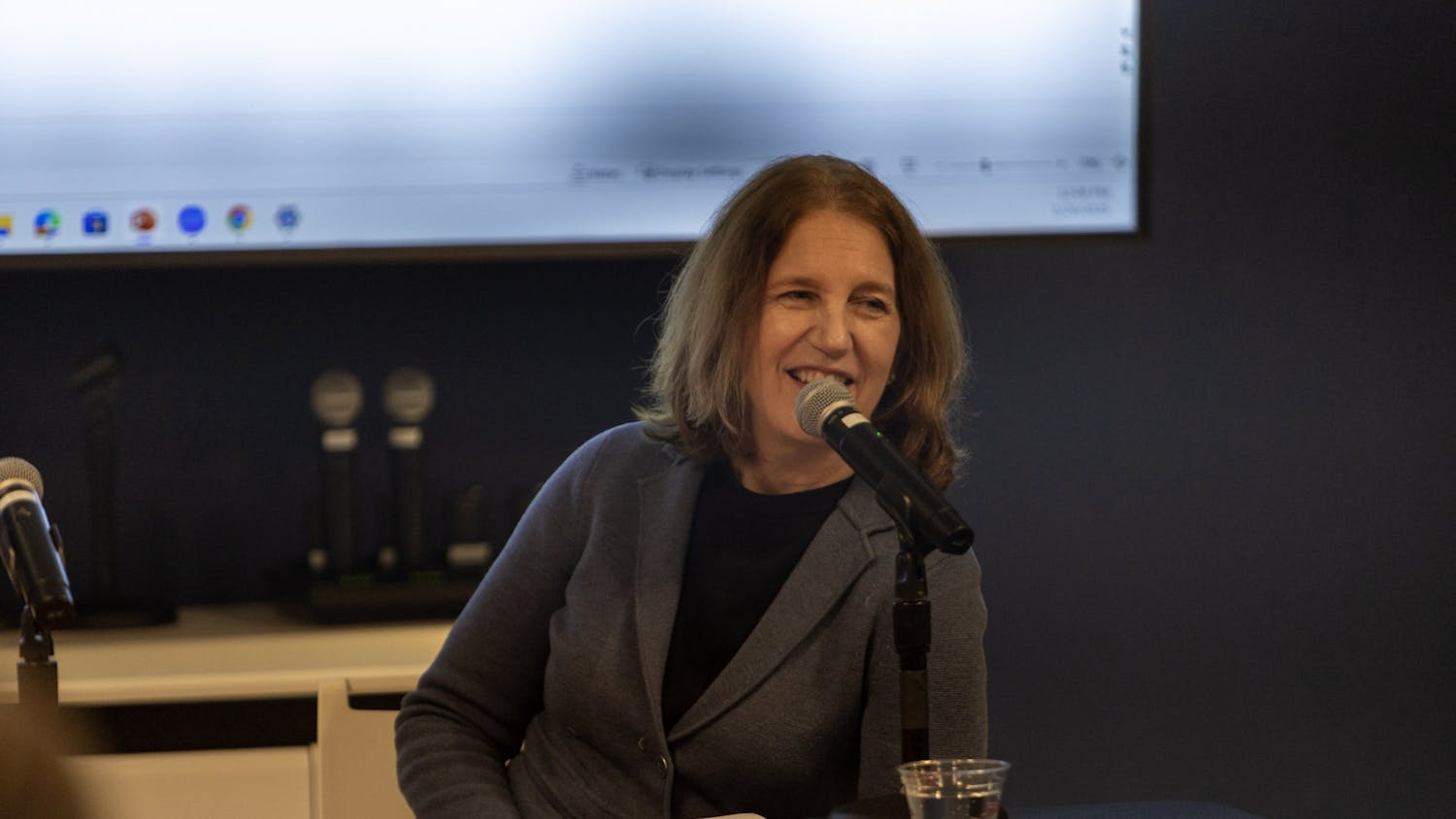AU inched up a spot over last year to No. 12 in a national ranking of colleges and universities whose alumni joined the Peace Corps.
AU holds this position in the medium-sized colleges and universities category, which includes schools with an undergraduate enrollment between 5,001 and 15,000. Thirty-seven AU alumni volunteered in 2004, according to the Top-Producing Colleges and Universities list the Peace Corps released this week. In 2003, AU ranked No. 13, with 31 alumni making the 27-month commitment to volunteer in one of 72 countries.
AU has consistently ranked high on the list because "it's a very internationally minded campus and very service oriented," said Brianna Fischer, the Peace Corps recruiter who handles applicants from AU.
The No. 12 ranking puts AU right behind Brown University, which moved up six spots by sending 38 alumni last year. George Washington University, with an undergraduate population of 9,953, ranked No. 3 with 61 alumni in the Corps, and Georgetown University, with nearly 6,279 undergraduates, was second with 67 alumni volunteers. The University of Virginia earned the No. 1 position in the medium-sized category, sending 84 alumni last year.
AU also has a significant number of staff and faculty members who participated in the Peace Corps, Fischer said. Their experiences can impact the number of students joining and working in Peace Corps fields, which include education, health, HIV prevention, the environment and agriculture, Fischer said.
For example, professor Brock Brady, coordinator of the Teaching English to Speakers of Other Languages program at AU, taught people in West Africa how to plow with oxen during his stint with Peace Corps. Now he encourages students who have "an international focus" to take part in AU's master's degree program partnership with Peace Corps.
TESOL teaches English at secondary schools and universities both in the United States and abroad. Successful applicants to the program are eligible for nine free credits at the end of their course work if they make the commitment, Brady said.
"To be qualified to teach at a university level, you need to have a graduate background," Brady said.
Upon completion of the program, Brady said students are considered full-fledged professionals who should have no difficulty finding meaningful and high-paying jobs.
The program has not seen huge but rather "steady" numbers, according to Brady. He said the thought of simultaneously considering graduate school and Peace Corps work is daunting to many students.
Jacqueline Gasser, a graduate student in the TESOL program, said she is considering entering Peace Corps "to gain professional experience abroad" in either Eastern Europe or Asia.
Only financial reasons and the time commitment make her question the choice.
"If it was a year long, I'd do it in a heartbeat," she said.
Fischer expects AU's rank to remain steady and possibly climb even higher.
"AU has very aware and socially conscious people," she said.
Peace Corps representatives will be present at the Career Center's annual Job Fair on March 24 and will hold an open information session in Mary Graydon Center from 11 a.m. to 1 p.m. on Feb. 3. For more information, see www.peacecorps.gov.




